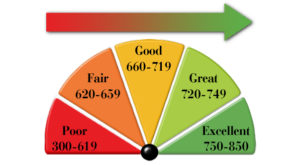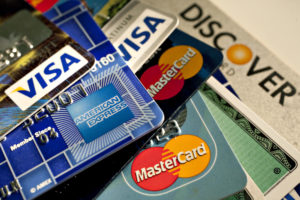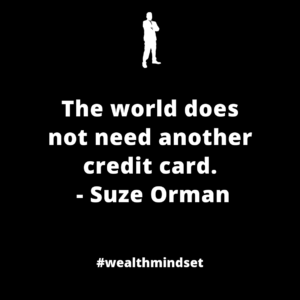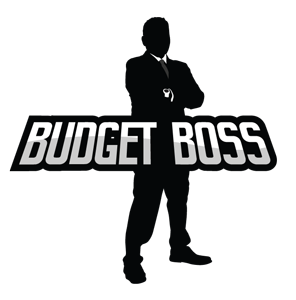Monday, March 11, 2019
How Maxed-Out Credit Hurts You
I’ve been there. It’s a gross feeling. Hovering near or above the limit of a credit card or line of credit is terrifying. What will happen? How do I get out of this jam? What’s this going to cost me? Having your credit avenues maxed out is more damaging than you might think. Besides the obvious mental damage it does to you, it can really knock you financially. Today, I will show you 7 ways that maxed out credit hurts you. While I don’t like using fear as a motivator, in this case, it is necessary.
1) Monthly payments become ridiculous
Here is the major issue with most forms of credit, it’s cheap. That is until you have racked up enough of it. You see, I put most things on my credit card and then pay the balance immediately. Depending on the time of the month, I will see a minimum amount due. If I have a few hundred dollars as my balance, the minimum payment is something puny like 10 bucks. When it gets a little hairy is when you start hovering in the multiple thousands as your balance. I remember back when there was about 17K in credit card debt. The monthly minimum payment was over $500. Now the goal is to pay that off obviously. The problem is the obligation to make the minimum. There are not many people who can afford an extra $500 in their budget. Raking up your card will almost certainly guarantee an outrageous minimum monthly payment.
Stop Living Paycheck to Paycheck – Budget Boss
2) Going over is very costly
The penalty for going over your credit card limit is not cheap. Those charges range in the 30 to the 75-dollar range. That is of course on top of the minimum payment you already must make. This does not even attack the principle of what you owe. Think about this for a second. You have a credit card with a $1000 limit. You have $999 used on that card and your monthly minimum payment is $27. By using the last available dollar, you triggered a $50 fee! That one dollar cost you 50 more! That is absolutely outrageous! This is one reason why you should never go over 30% of your available credit and ideally pay it off as soon as you use it.
The Dangers of Credit Card Debt and How to Avoid Them – The Balance
3) Your credit score will drop
When you go over your limit, your credit score will drop dramatically. Going over could drop your score as much as 50 points or more, which could be devastating. Even being near the limit is costly towards your credit score. You might say to yourself: “Well I am not applying for any credit, so credit score isn’t important to me.” You may not know when you will need good credit, so keeping your score tip top is important. For example, if your mortgage is coming up for renewal and your lender offers you a subpar rate. You decide to shop your mortgage but the company with the better rate denies you cause of credit score. That could cost you thousands over the next term of your mortgage. Credit is also used for car loans, job applications, rent applications, and many other things. Be safe and don’t go over.

4) Lenders don’t like it
Along the lines of hurting your credit score, it just plain looks bad to lenders. Quite frankly, it screams laziness. Paying bills late, letting things pile up, not handling your obligations, it’s just bad business. Now we all make mistakes and lenders are forgiving to people who have a couple of blips on their report. When there is a trend of mistakes, they paint a picture of bad financial habits. I know this, I have been in meetings with lenders as they judge the “worthiness” of a client to lend to. You see, although there are calculations and computer programs that judge whether you should be loaned to, some of it still depends on the person putting in the application. They can often find a way to make it work for you if the conditions are right. They definitely aren’t right if you have maxed out credit. They are less likely to go to bat for you if you have a pattern of financial mistakes, such as going over your credit limit.
5) It hurts your mobility
Being tapped out in terms of credit hampers your ability to maneuver. I recommend to all my clients that they should have an emergency fund of at least 3-6 months of their income. This helps them in case anything knocks them off their path. Sadly, most people do not have fully funded emergency funds. Most people use credit as their emergency fund. While I DO NOT recommend this, I understand that those without savings will do what they must to survive. If you have no emergency fund, and maxed-out credit, you are hovering on the brink of disaster. One car repair, one blown furnace, one sick pet, or job loss and you could be euchred. I use credit for purchases that require credit. Car rentals, hotels, tickets, trips, etc. With maxed out credit you must come up with cash at all times. While that is a good thing, the problem then becomes what if you don’t have the cash. Long story short, keep emergency savings and you won’t have these problems.
If You Are Excited for Black Friday, You’re an Idiot – Budget Boss
6) You get used to it
I remember when I lived in overdraft. I got really used to counting in negative numbers. -$1400 plus an $835 paycheque equals blah blah blah. It became so common that seeing a zero balance was odd. The problem with debt is that the longer you stay in it, the easier it becomes to live with it. It is truly a mentality shift that needs to be made to get and stay out of it. Think of how amazing it must feel when you have no monthly housing payments. A fully paid off mortgage is a thing of beauty. From the age of 20 or so, you are paying a huge part of your monthly income just for the ability to not live on the street. When that burden is lifted, it’s like winning the lottery. Now think about if you didn’t have monthly debt payments. At one point, I was paying $2,000 a month towards debt. It felt like I was throwing money in the toilet. When those days ended, saving money was a breeze. “You mean I get to keep the money I worked for?” It is amazing what we can get used to. Don’t let maxed out credit be one of them.
New Year, New Me…. Yeah, sure – Budget Boss

7) It hampers your leverage with the lender
I would not recommend going to your boss and asking for a raise after showing up late that morning. I also think you should try and negotiate from a position of strength with lenders. You see, your debt is their business, it’s how they make money. When you have a lot of debt, they make a lot of money. Simple right? For them, you being debt free, paying a lower interest rate, or anything else that betters your life is not in their best interest. When you are maxed out, they own you. They make the choices and you are lucky to have a seat at the table. You are no longer a client, you are a slave. Slaves don’t help make the rules, they follow the rules. If they decide to raise your interest rate, what can you do? They can also force you into a closed loan, essentially shutting off your credit. Leverage is key and being maxed out takes away all your leverage and gives it to the lender.
When you are maxed out you are constantly playing the “Robbing Peter to pay Paul,” game. It’s a gross feeling so you must be vigilant in trying to stay debt free or near it. The banks are rich enough, we don’t need to help them get richer by making poor choices.
“The world does not need another credit card.” – Suze Orman

Want to improve your Finances? Click here to Book your meeting with the Budget Boss!
Email – joe@budgetboss.ca
Follow Budget Boss on – Facebook LinkedIn Twitter Instagram Pinterest Quora

